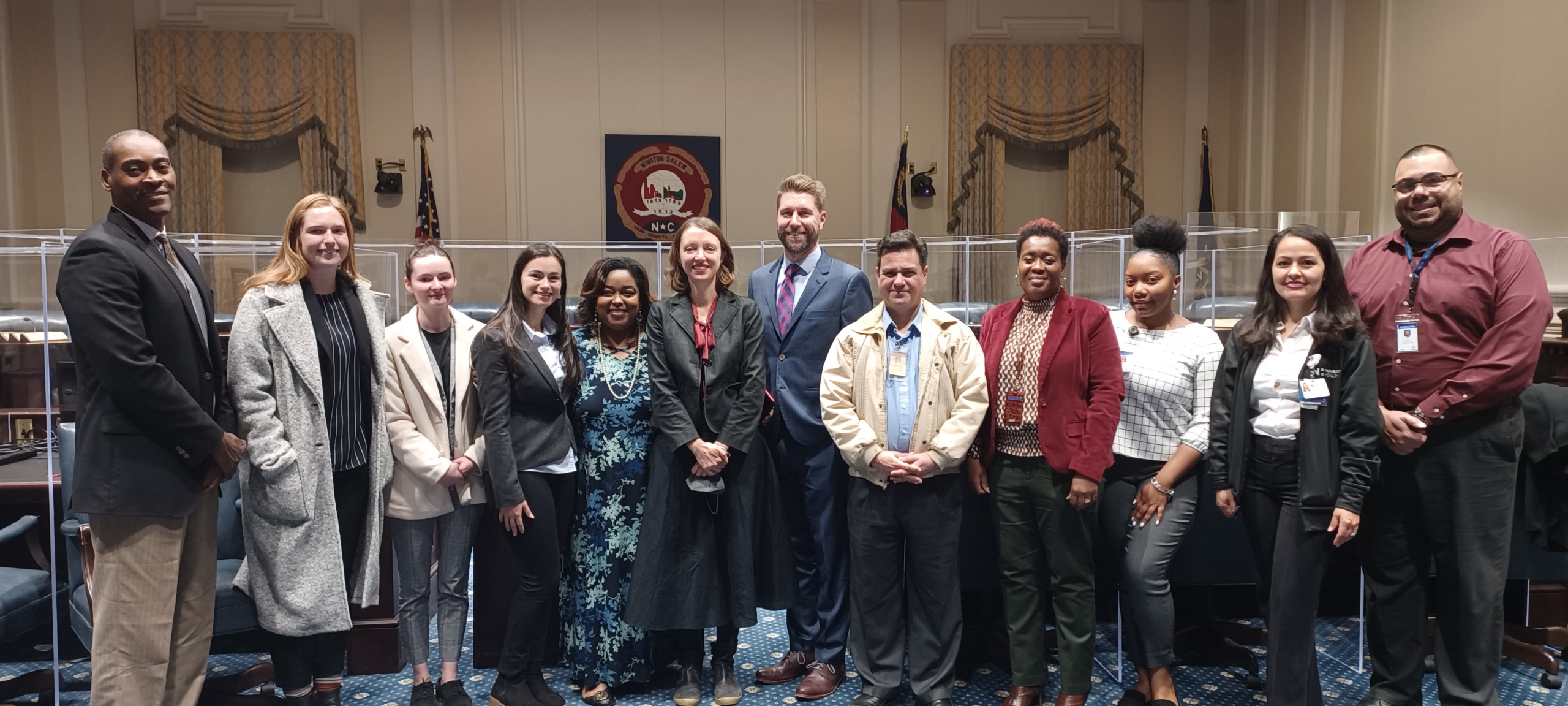Winston-Salem Building Integrated Communities featured on UNC Bus Tour
En español aquíOn October 20th, the second day of the 2022 Tour, around forty Carolina faculty, administrators, and staff were welcomed to the City of Winston-Salem by Mayor Allen Joines for a briefing on the Human Relations/DEI Department’s Building Integrated Communities (BIC) Program. The BIC partnership with the City of Winston-Salem began almost eight years ago and included convenings of public discussion groups with more than 200 residents, an assessment of local resources, and surveys with foreign-born residents from 23 countries of origin. This community-based participatory process heavily informed the Winston-Salem Action Plan, which includes recommendations to improve several issues such as educational support, government communication, health care access, and public transportation. Participating in the Tour provided an opportunity to share how the BIC program informs local public policy by expanding knowledge about immigrant communities in North Carolina, with the City of Winston-Salem being a principal example. The director of the Human Relations/DEI Department, Wanda Allen-Abraha, spoke to the Tour participants about embracing the BIC vision in the multiple initiatives that have been developed from the 2016 Action Plan including the BIC Pipeline Session, Newcomers Symposium, and a digital directory of multilingual resources.
Tour participants learned about the BIC Pipeline Session, a quarterly half-day event designed to inform new residents of critical services and resources that newcomer residents may seek, brings multiple City departments and local organizations together. A participant attending a BIC Pipeline session will have the opportunity to learn directly from providers and city staff on housing, legal assistance, safety, transportation, health, education, and World Relief organization services and resources all in their preferred language. Our community stakeholder, Patricia Spainhour, a healthcare provider with Novant Health and an immigrant from Costa Rica, spoke to the Tar Heel Bus Tour participants about her presentation on healthcare resources and services at the BIC Pipeline sessions. Another community stakeholder, Daniel Joyce, an attorney from Legal Aid of NC, spoke about the legal services BIC Pipeline session and their work on eviction diversion. This multilingual multiorganizational event has continued to be an important service in the community which emphasizes the importance of sharing resources and services while building trusting relationships between local government and local immigrant and refugee serving organizations.
Tour participants also learned about the Newcomer’s Symposium, an annual conference for service providers to learn about issues impacting immigrant and refugee communities. The Symposium addresses another need identified through the BIC community participatory assessment an enhancement of provider-education regarding potential barriers of access for foreign-born families. Many of the 2020 Newcomers Symposium videos, which related to topics including racial equity in local government and language access plans, are available online. Most recently, Winston Salem BIC created a new digital directory of local resources to serve as an informational hub for residents. This English and Spanish directory provides local educational, faith, health, housing, public safety, transportation, and interpretation and translation resources that are critical to serving and supporting foreign-born residents. This expansive and user-friendly directory stems from the eight-year relationship between the local government and organizations that provide direct multilingual resources.
Winston Salem BIC is an example of how community experts and practitioners can enrich the academic environment of UNC Chapel Hill. For students who participate in the BIC process through their coursework (e.g. qualitative methods, Latin American studies and other courses), internships, and/or the work study program, the opportunity to work with knowledgeable community leaders is a vital part of education. For example, students have facilitated committee meetings, conducted multilingual focus groups, participated in community trainings on using interpretation equipment, and evaluated census and other demographic data. The BIC program also provides participating faculty and staff from multiple disciplines, professional schools, and centers to apply research to public policy solutions, thereby strengthening the relevance of the university to the state of North Carolina.
The statewide BIC program is an initiative of the Institute for the Study of the Americas (ISA), one of the first educational centers in the United States dedicated to the study of Latin America. To learn more about the initiative and ISA programs, visit isa.unc.edu.